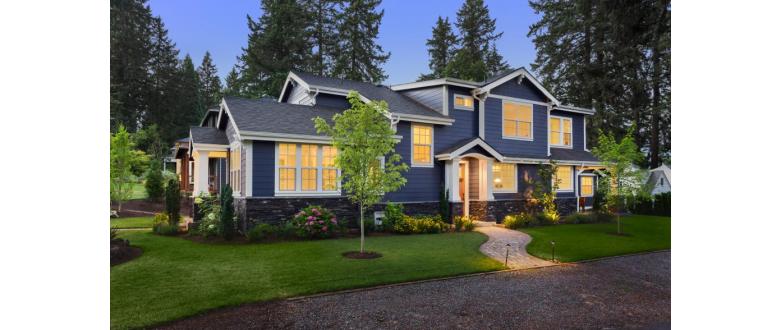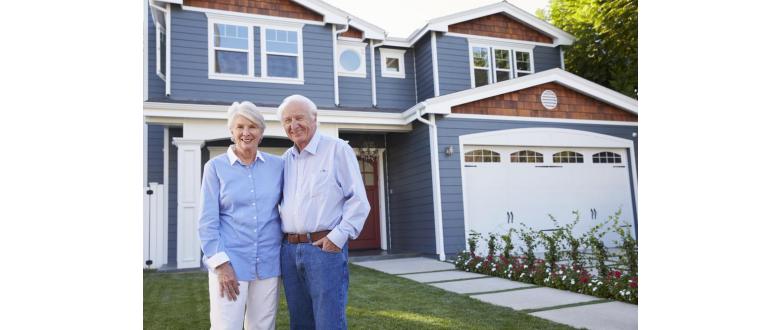May 18, 2020
0 comments
Home Security If Living Alone for the First Time
Having
your own place can be quite an adjustment
Most of us are accustomed to living with others. We typically spend a couple of decades with our immediate families, followed by sharing space with roommates, partners, and families of our own. It can be especially challenging, then, when life events like divorce or bereavement leave us living alone. Even moving out of the family home for the first time can be nerve-wracking.
The freedom to decorate your way, eat and sleep when and where you like, and leave your dirty clothes on the floor can be easily eclipsed by things that go bump in the night. Whether your fears are all in your head or you have legitimate concerns about home security, there are steps you can take to increase your personal safety.
The following tips for living alone for the first time will help ease the transition between cohabitating and flying solo.
Aspects
of safety and security to consider when you’re on your own
While it’s important to follow general home security guidelines, whether you're residing solo or with others, there are additional safety measures that those living on their own should take. Let’s cover some strategies, including considering your home’s location, beefing up your home’s security, and keeping your personal information out of the wrong hands.
Know your
neighborhood
If you are moving from a shared home to one of your own, it helps to choose a safe place to live. Research the crime rate in any area of interest before you move.


If you are staying in a home you already live in or don’t have a lot of choice about where you move, it’s still a good idea to use online resources to learn about criminal activity in your neighborhood. Some of these platforms let you sign up to receive alerts when new crimes occur within a certain radius of your residence. Awareness can be key to reducing the chances that you will be victimized.
Secure
your doors and windows
A large percentage of burglars enter homes through an unlocked door or window. Keeping your doors and windows closed and locked even when you’re present can significantly reduce your risk of suffering a home invasion.
You should also make sure your exterior doors, windows, and locks are sturdy and secure, following these detailed home safety tips. If possible, replace exterior locks as soon as you move in—you never know who could still have a key. And never leave an extra key hidden outside. Any hiding place you can think of, a burglar can think of too.
Consider
the ease of access to and from your home
If you live in a house, there are several things you can do to make it more difficult for an intruder to approach your home and enter it unobserved. Installing exterior lighting, trimming trees and bushes, and choosing appropriate fencing all have a part to play in increasing security.
As important as it is to keep uninvited guests out of your residence, it’s equally vital to plan an exit strategy for yourself in case of an emergency. Make sure you know how to remove bedroom window screens, invest in an emergency ladder for second-story rooms, and ensure that you have a way to call for help and a place to go when you leave.
Don’t
advertise the fact that you live alone
Keeping your house well-lit at night deters burglars and gives anyone watching the impression that more than one person is inside. Keep your curtains and blinds closed so that you and your belongings aren't readily visible to passersby. If possible, have company over frequently. One of the top tips for women living alone in an apartment is this: don’t put your full name on your mailbox. Just use your last name so that no one can tell that you’re on your own.
It’s also important not to let strangers into your home when you’re alone. Don’t open the door to unknown visitors. And though it’s not always feasible, if you have to give someone you don’t know access to your property—like a cable installer or appliance repair technician—you can invite a friend over during the service window as an extra precaution.
Share
information only with those you trust
Get to know your neighbors. They can help watch for suspicious activity in the area, check in regularly to make sure you’re okay, or help out in a pinch. It’s good to have someone nearby who can drop off groceries if you’re sick or take care of your home while you’re away on vacation. Keeping your lawn mowed, driveway shoveled, and mailbox from overflowing prevent your home from presenting a tempting invitation to burglars.
Be careful when sharing information on social media. Don’t broadcast your routine, location, living situation, or vacation plans to people you don’t know and trust. Share the pictures after you get home! You may, however, want to share your location with a close friend or family member by using a GPS-tracking mobile app like Life360 or Apple’s Find My Friends. That way, someone always knows where you are in case of an emergency.
Consider
these other measures
Taking a self-defense class not only equips you to defend yourself against attackers physically, but also increases self-confidence and physical fitness. And if you’re prepared to make a long-term commitment and have the resources, you might consider adopting a dog. Canines are excellent companions, can protect solo walkers, and may drive potential burglars away with their barking.
Elderly individuals who live on their own need to take extra precautions. In addition to following basic tips for living alone, they should follow safety advice designed for seniors aging in place. Increased danger of falls, fading senses, and short-term memory loss can endanger isolated older people.


Home
security systems provide many benefits for solo-dwellers
Smart home security systems not only deter the majority of burglars, but they also offer increased personal safety and convenience. Even the most basic professionally monitored home security set-up will alert the authorities if it senses an intruder. And comprehensive systems like Frontpoint’s Safe Home Preferred set-up provide multiple layers of intrusion detection, security cameras for real-time and recorded video footage, and advanced fire, flood, and carbon monoxide protection.
When selecting home security components, opt for a system that sends mobile alerts and allows you to view suspicious activity on your phone or computer. This ensures that you are forewarned of potentially dangerous situations before you leave your house or arrive home from a long day’s work. Frontpoint’s wireless home security systems are quick and easy to install on your own—no installation fees and no need to let contractors into your home to do the work for you. Set-up takes about 30 minutes.
Follow
these intrusion prevention tips for living alone for the first time
It’s normal to be worried about someone breaking in when we’re home alone. But those who live on their own don’t need to maintain a constant state of anxiety. Intrusion sensors and security cameras send many burglars packing the minute they’re spotted or sound an alarm—and a full, monitored security system provides early warning and sends help if it’s needed.
Wireless door/window sensors are easy to install, issue alarms and alerts when triggered, and even send reminders if you leave your door hanging open. By “hearing” the sound of breaking glass, glass break sensors signal if an intruder busts through a window or patio door. Motion sensors alert you if someone is in your home who shouldn’t be.
Security cameras provide visual verification of the state of your home or yard. With Frontpoint’s video cameras, you can see real-time video from a laptop or cell phone, and view recorded clips. Our Outdoor Camera, Indoor Camera, and Premium Indoor Camera offer industry-leading detection range and infrared night-vision.


Incorporating
home automation into your security system expands the benefits
Frontpoint’s home automation capabilities allow you to remotely control a suite of items, including lights, locks, thermostats, and just about any other “smart” device that uses Z-Wave wireless communication. You can even set up automated schedules and “scenes” of equipment that work together on command.
With a Smart Door Lock installed, there is no need to hide an extra key outside or give one to a neighbor. You won’t worry about misplacing your keys or stand outside your front door, fumbling to unlock it in the dark—a Keychain Remote can unlock it with the press of a button. Users can also provide unique entry codes for pet sitters, a home cleaning service, or contractors, and only allow them access to the home at certain times of the day. Receive alerts if you leave your door unlocked, and lock it remotely if you forgot.
Smart Light Bulbs and Wireless Light Controls can be used to make your home seem occupied, even when it’s not. Set lamps and porch lights to turn on at dusk and off at set times or create seemingly random patterns that will fool anyone casing the place into thinking someone’s home. Do you prefer to return home to a well-lit house and leave the lights on until you’re safely in bed for the night? Smart lighting has your back.
Protect
yourself in an emergency with these safety tips for living alone in an
apartment or a house
Intruders aren’t the only danger for people who reside on their own. Both home fires and carbon monoxide poisoning can be more hazardous for solitary individuals. If you sleep through an alarm or are incapacitated by smoke or carbon monoxide, you have no one to help you escape. Smart environmental sensors, combined with professional monitoring services, provide additional life-saving support.
Smoke and Heat Sensors and Carbon Monoxide Sensors sound an audible alarm and send mobile notifications, giving you time to safely escape an untenable situation or know what’s happening if you aren’t home. And if either of these sensors is triggered, the 24/7 monitoring service will be notified immediately and can rapidly send emergency personnel, if necessary.
Preparation
provides peace of mind for individuals living alone for the first time
Taking a few simple steps can make your new life as a single person safer and easier. Secure your property, protect your privacy, and plan for emergencies. And installing a home security system with 24/7 professional monitors who stand ready to send help means that you’re never truly alone in a crisis.











 Contact us
Contact us